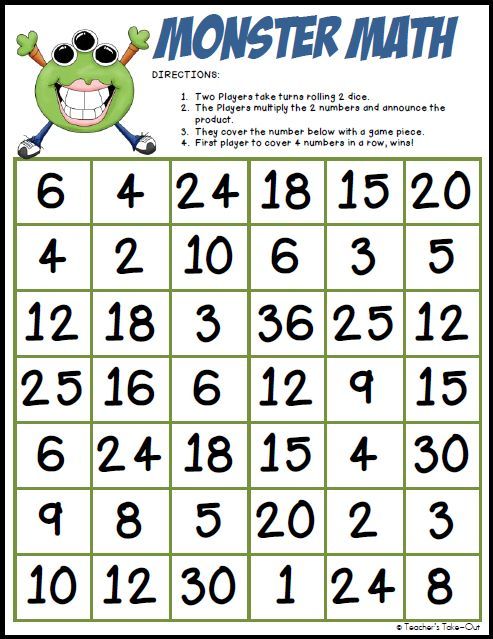
Whether you're planning to attend college, or you already have your degree in hand, there are numerous scholarships available to help you meet the cost of tuition. Scholarships can be a great way of paying for school and increasing your chances to get into the field you want.
Illinois offers many scholarships that can be used by students in any field, including education or health care. While many of the most competitive scholarships cover full tuition, it isn't uncommon for them to require a strong GPA and additional financial need criteria.
Some scholarships are designed specifically for minority students, such as the Golden Apple Scholarship or the Minority Teachers of Illinois scholarship. These scholarships are designed to help students of Asian, Hispanic, and black descent who wish to become teachers.

There are also many general grants and scholarships that are offered by the state government that you should check out. Although they aren't as well-known as the scholarships, they can be a good starting point for your scholarship search.
For example, residents can apply for the Illinois General Assembly Legislative Scholarship at any state-supported university in Illinois. Each member of the state's General Assembly is allowed to nominate two eligible college-bound students to receive a scholarship, which can be for a one, two or four year duration.
The Environmental Career Scholarship provides $500 in scholarships to high school seniors who want to study science. All applicants must prove financial need and academic achievement.
The Crystal Charitable Fund offers a scholarship for Chicago-area youth who wish to further their education beyond the high school level by taking part in a study abroad program, an internship or a college course. The organization accepts applications for 13- to 19-year-olds in need of financial assistance and have a minimum 3.0 GPA.

Illinois Future Teachers Corps Scholarships can give up to $10,000 per academic year towards tuition to high school students interested in teaching. This program is intended to reduce teacher shortages in underserved school districts and specific subject areas, like science or math.
Scholarships may be available to cover travel and living expenses during college. The recipient must also demonstrate financial need and agree to teach for a predetermined period of time in an Illinois public, middle, or high school.
There are many national organizations that offer scholarships for students studying in Illinois. Others also offer support for training in nursing or medical. These programs are often highly selective and will only accept students who live in a certain area, county or city. Sometimes, there are even residency requirements. Before submitting your application, ensure you review all regulations.
FAQ
How can I apply for college?
There are many ways to apply for college. Get started by talking to your high-school guidance counselor or admissions representative. Many high schools now use online applications. Contact local colleges for more information. Many colleges will accept applications through the Internet via their website.
If you are applying by mail you will need to fill in the application, submit a personal statement and copies of all required documents. Your personal statement is a chance to explain why you are interested in attending this institution and what it would mean for you. The personal statement helps you to communicate your motivations and goals to the admissions committee.
On our website, you will find samples of essays that can be downloaded.
What is the difference in a university and college?
A university is an academic institution that provides higher education. It offers both undergraduate and graduate courses in many fields.
A college is usually smaller and less prestigious than a university. It might offer fewer courses, but it will often have its own specialist areas.
What does it mean for a teacher to teach early childhood education?
Early childhood educators must have specialized training. Most states require teaching candidates to get certification from state boards in order to be allowed to teach in public schools.
Some states require teachers to pass tests on subjects like math and reading.
Some states require teachers to hold a certain number of hours of coursework related to early childhood education.
Most states have minimum requirements that teachers must know. However, these requirements vary widely between states.
Who can homeschool?
Anyone can homeschool. There aren't any requirements.
Parents who have completed high school can teach their children. In fact, many families choose to teach their older children while they attend college.
Parents who have received less formal education can still teach their children.
After completing certain requirements, parents can become teachers certified. These requirements are different for each state.
Some states require homeschooled student to take a test in order to graduate. Others do not.
Parents who want to homeschool their children must register them with the local school district.
The process involves filling up paperwork and submitting the completed form to your school board.
After registering, parents may enroll their children into public or private schools.
Some states permit parents to homeschool their children without having them registered with the government.
If you live in one of these states, you will be responsible for ensuring your children meet the requirements of the state's compulsory attendance law.
What is a vocational college?
Vocational school programs are designed to prepare individuals for specific jobs. They can also offer training in specific skills and general education.
Vocational education is an important part of our society because it helps young people develop the skills they need to succeed in life. It provides students with high-quality learning experiences.
A vocational school gives its students many options. This includes certificates, diplomas/degrees, apprenticeships, certificates as well college transfer programs and other postsecondary credentials. Vocational schools provide both academic and practice-oriented subjects such as math and science, English and social studies.
How do I select my major?
Students choose their majors by their interests. Some students prefer to major in a subject they enjoy doing because they will find this easier than studying something else. Some students want to go into a field where there is no job. Others are motivated to make a living while studying a major. Whatever your reasons, you should consider what kind of job you might like after graduation.
There are many methods to learn more about the different fields of study. You can talk to family members or friends about your experiences in these areas. Read magazines and newspapers to see if there are any careers listed. Talk to a guidance counselor at high school about possible career paths. Visit Career Services at your local library or community center. You can borrow books about various topics from the public library. Use the Internet to find websites related to particular careers.
Statistics
- “Children of homeowners are 116% more likely to graduate from college than children of renters of the same age, race, and income. (habitatbroward.org)
- Among STEM majors, that number is 83.5 percent. (bostonreview.net)
- These institutions can vary according to different contexts.[83] (en.wikipedia.org)
- Think of the rhetorical power of nineteenth-century abolitionist Harriet Beecher Stowe, Martin Luther King, Jr., or Occupy Wall Street activists with their rallying cry of “we are the 99 percent.” (bostonreview.net)
- They are more likely to graduate high school (25%) and finish college (116%). (habitatbroward.org)
External Links
How To
How do I apply to scholarships?
To apply for scholarship funding, first, make sure you qualify for it. Only those who meet the criteria for scholarship funding are eligible.
You may also be eligible for a grant if your family is financially poor. A vocational training course can be eligible to qualify you for work-study programs. And you can receive a grant because you are a member of a minority group.
Once you've determined your eligibility for a specific type of scholarship, it is time to start applying.
You can apply online or in person. The application process varies depending on the type of scholarship.
Some scholarships require you to submit essays about yourself and why you want the money. Some ask you questions such as "Why did this major interest you?"
You must fill out an application for scholarships and attach supporting materials.
Your scholarship provider will evaluate the information you supply. If you are selected for a scholarship, you will be notified electronically or by mail.
You may still be eligible for another scholarship even if you aren't selected. Contact your scholarship provider for details.